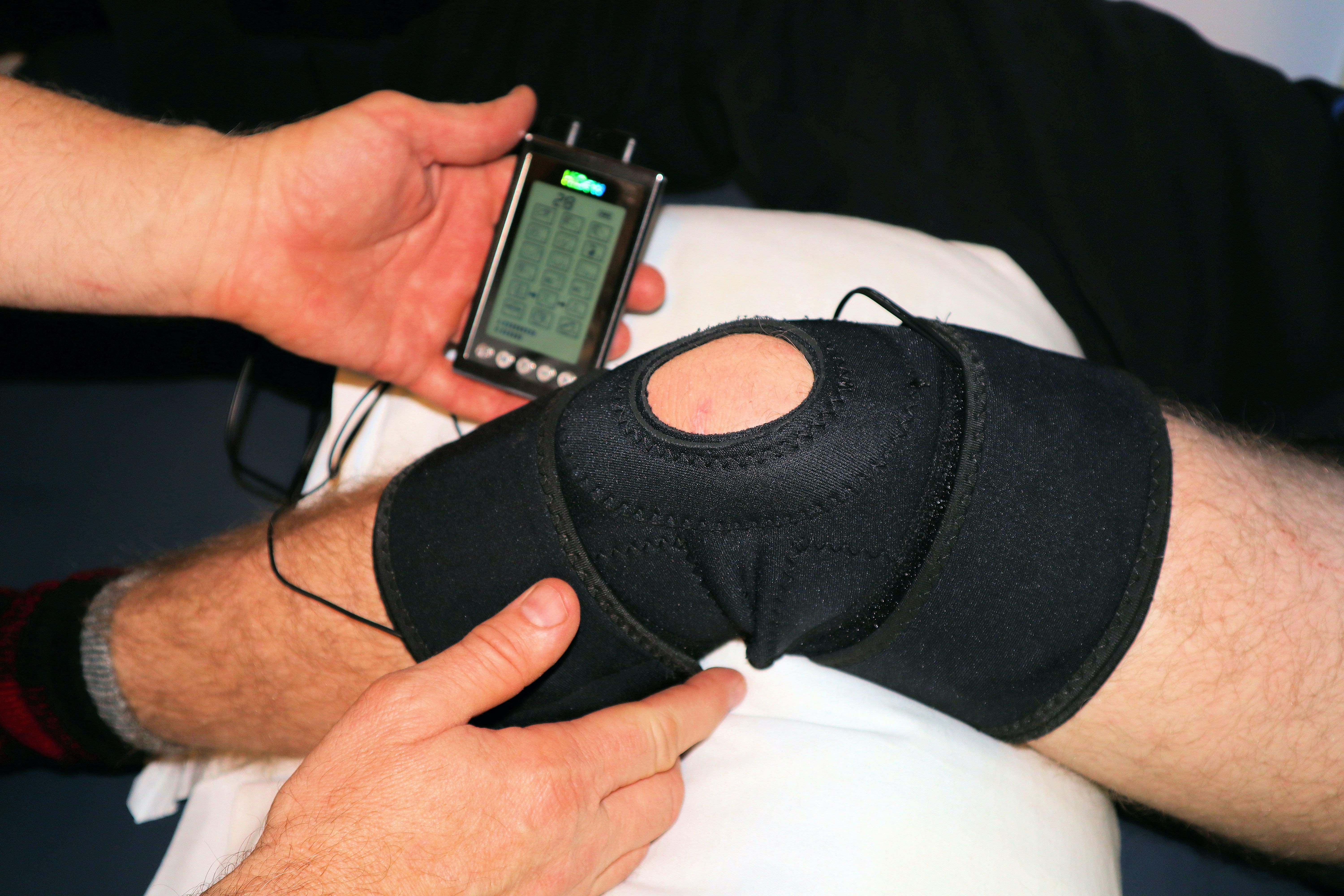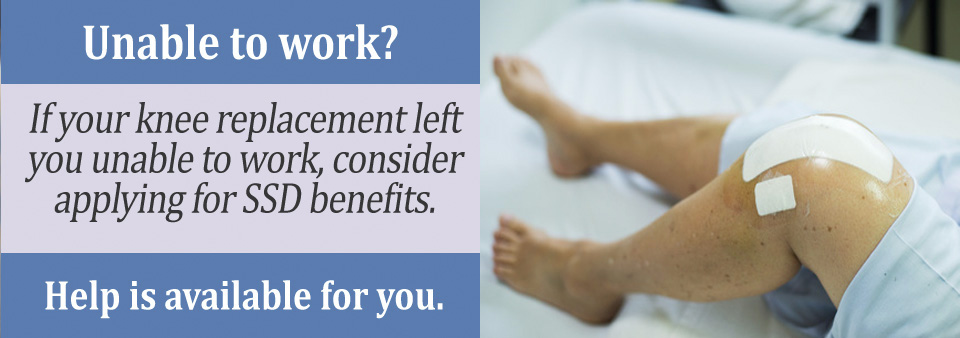We often take for granted the ability to get from place to place by walking. However, when suddenly faced with difficulty ambulating due to an injury or condition, we quickly realize how important our legs truly are.
From acute injuries such as torn ligaments to more chronic conditions such as arthritis, knee pain affects millions of Americans every single day. While most knee conditions are short-lived, some individuals face longer recoveries. For those individuals, Social Security Disability Insurance (SSDI) may be a financial life-saver.
Types of Knee Disabilities
There are a variety of knee disabilities that may qualify for disability benefits. These include the following:
arthritis,
chronic joint pain,
dysfunction of a knee joint,
amputation at the knee,
needing an assistive device (like a prosthetic leg or walker),
limited range of motion in your knee.
There could be many reasons for your knee disability but you must use the Social Security Administration’s (SSA’s) Blue Book to determine if you are likely to qualify for disability benefits. For example, if you have arthritis, this medical condition can be found in Section 14.00 of the Blue Book.
If you have a major dysfunction of a knee joint due to any cause, this can be found in Section 1.02 of the SSA Blue Book. You will have to provide proof of the severity of the knee joint dysfunction such as showing the results of medical imaging which reveals the damage to your knee joint. You have to be able to prove that your ability to walk is significantly affected by the dysfunction of your knee joint.

With all knee disabilities you have to show that your knee pain prevents you from performing any job for which you could reasonably be trained.
The SSA will require plenty of medical evidence that proves your knee problem qualifies you for disability benefits. This could include a doctor’s report indicating your treatment and your symptoms that markedly restrict your mobility.
The exact evidence needs to show that your joint pain has lasted for at least 12 months or longer and that it makes it impossible for you to work. Typical medical evidence required includes X-Rays, lab tests, and/or MRIs or other medical imaging.
What Types of Knee Problems Might Qualify for a Disability Award?
The knee is a major weight-bearing joint, meaning that it carries the majority of the weight on your body. With many muscles and ligaments, the knee is a rather complicated joint. Because the knee is weight-bearing joint, obesity has a significant adverse impact on the knees.
A wide range of conditions can cause knee pain. Many knee injuries happen as a result of accidents, such as those sustained in sports or falls. Other knee conditions are more chronic and are caused by diseases such as osteoarthritis, rheumatoid arthritis, or gout. Some individuals who have experienced trauma, such as a car accident, can suffer from post-traumatic arthritis.

To be considered for a disability award, your condition must last or be expected to continue for at least one year. As a general rule, this is not the case for knee conditions. Most knee conditions are easily managed through surgery, physical therapy, or pain medication. In fact, knee replacement surgery is one of the most successful operations available. 9 out of 10 individuals report immediate relief from pain after having a knee replacement.
However, there are some instances where a knee condition is chronic and debilitating. For example, those who have rheumatoid arthritis can often expect knee pain to continue, as well as have other difficulties from this systemic disease.

Knee Replacement Surgery
There have been situations where knee surgery failed and the patient was left with a knee that is still uncomfortable or does not function adequately. Most patients with persistent knee issues who have surgery benefit from reduced symptoms, but the improvement isn't always sufficient to allow them to return to work.
Chronic discomfort, loss of range of motion, locking/clicking, stiffness, and limited mobility can all occur after complete or partial knee replacement surgery.
When deciding on your claim, the SSA will look to determine if you match the criteria for one of its "medical listings," in which case you'll be eligible for payments right away, or if it needs to consider vocational variables, such as the type of work you can do. In any scenario, you must be out of work for at least 12 months, which might encompass both the time leading up to the surgery and the time spent recovering.
Qualifications Via the Blue Book
The Social Security Administration (SSA) maintains a list of qualifying conditions in their manual called the Blue Book. This book helps claimants and their lawyers determine if their disease is severe enough to warrant financial assistance. Rheumatoid arthritis is listed in section 14.09 of the Blue Book, titled “Inflammatory Arthritis.”
One of the criteria listed in this section of the Blue Book includes persistent inflammation or deformity of a major peripheral weight-bearing joint, such as the knee, which makes it difficult for a person to ambulate. Individuals with rheumatoid arthritis can also qualify for disability with other symptoms such as severe fatigue, fever, involuntary weight loss, or involvement of other major organs or body systems.
A diagnosis of rheumatoid arthritis is not enough to win an award, however. An individual with knee pain as a result of rheumatoid arthritis must provide significant medical documentation, such as x-ray images or CT scans that show bone destruction or narrowing of the joint space of the knee.
Individuals with knee pain who do not meet a Blue Book listing might still qualify for financial assistance if their condition is severe enough to prevent them from working. These people will need to successfully complete a residual functional capacity assessment and be able to prove that their condition prohibits them from working at their current job or any other job that they are qualified to have.

Should I Reach Out to a Social Security Attorney for Assistance?
Because most knee injuries are short-lived, very few people with knee pain will win an SSDI award. However, for those people with more long-term knee problems, a disability award is possible. In addition to helping you determine if your condition might qualify you for benefits, a qualified Social Security lawyer or disability advocate can guide you through the disability application process.